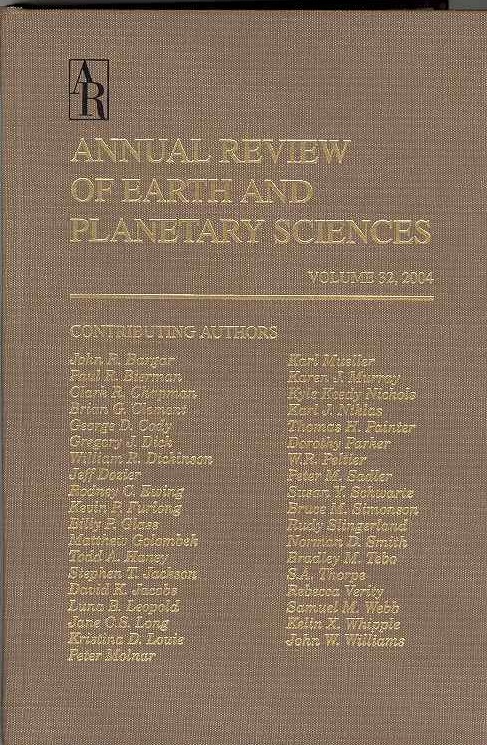迈向微生物生命的自然史
IF 13
1区 地球科学
Q1 ASTRONOMY & ASTROPHYSICS
Annual Review of Earth and Planetary Sciences
Pub Date : 2024-07-23
DOI:10.1146/annurev-earth-031621-070542
引用次数: 0
摘要
在地球历史的大部分时间里,生命都是微生物的,古细菌和细菌细胞通过其新陈代谢和生态调节生物地球化学循环。这种多样性足以维持一个宜居的星球,以应对阿新世和原生代的剧烈环境变化。然而,与新生代地质记录中所记载的复杂生命的丰富故事相比,我们对前 30 亿年生物圈的了解就显得微不足道了。在这篇综述中,我们试图建立一个微生物自然史框架,突出强调最近和正在进行的将微生物学、地球化学和传统生物进化生物学统一起来的研究,并提出六项广泛适用的原则来帮助这些努力。通过这种方式,微生物生命的进化史--曾被认为只是新生代复杂的元古代生命史的前奏--终于有了自己的发展。微生物推动了地球的生物地球化学循环,它们的自然历史反映了与地球的共同进化。 ■过去的环境变化引发了微生物的生物过渡,其标志是灭绝、分类转变以及新的代谢和生态。本文章由计算机程序翻译,如有差异,请以英文原文为准。
Toward a Natural History of Microbial Life
For most of Earth's history life was microbial, with archaeal and bacterial cells mediating biogeochemical cycles through their metabolisms and ecologies. This diversity was sufficient to maintain a habitable planet across dramatic environmental transitions during the Archean and Proterozoic Eons. However, our knowledge of the first 3 billion years of the biosphere pales in comparison to the rich narrative of complex life documented through the Phanerozoic geological record. In this review, we attempt to lay out a microbial natural history framework that highlights recent and ongoing research unifying microbiology, geochemistry, and traditional organismal evolutionary biology, and we propose six broadly applicable principles to aid in these endeavors. In this way, the evolutionary history of microbial life—once considered only a prelude to the much more storied history of complex metazoan life in the Phanerozoic—is finally coming into its own. ▪The outlines of microbial natural history are now starting to appear through the integration of genomic and geological records.▪Microorganisms drive Earth's biogeochemical cycles, and their natural history reflects a coevolution with the planet.▪Past environmental changes have induced microbial biotic transitions, marked by extinction, taxonomic shifts, and new metabolisms and ecologies.▪Microbial evolution can benefit from a historical perspective of processes and successions as established by macropaleontology.
求助全文
通过发布文献求助,成功后即可免费获取论文全文。
去求助
来源期刊

Annual Review of Earth and Planetary Sciences
地学天文-地球科学综合
CiteScore
25.10
自引率
0.00%
发文量
25
期刊介绍:
Since its establishment in 1973, the Annual Review of Earth and Planetary Sciences has been dedicated to providing comprehensive coverage of advancements in the field. This esteemed publication examines various aspects of earth and planetary sciences, encompassing climate, environment, geological hazards, planet formation, and the evolution of life. To ensure wider accessibility, the latest volume of the journal has transitioned from a gated model to open access through the Subscribe to Open program by Annual Reviews. Consequently, all articles published in this volume are now available under the Creative Commons Attribution (CC BY) license.
 求助内容:
求助内容: 应助结果提醒方式:
应助结果提醒方式:


